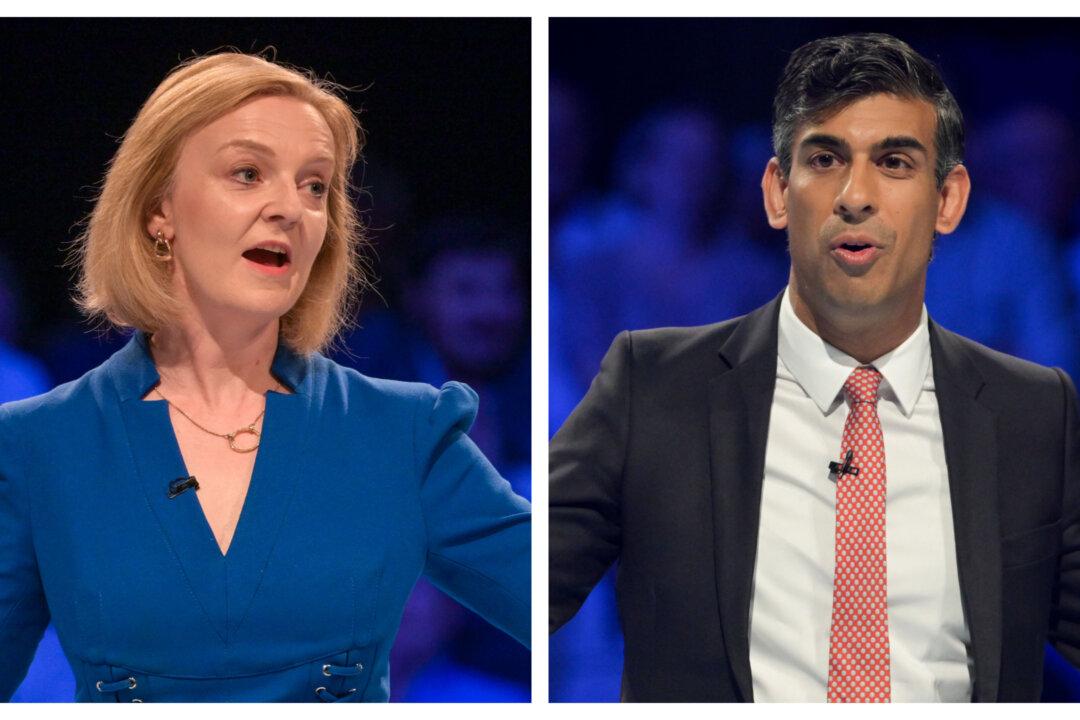The two candidates vying to become the UK’s next prime minister continued to court voters on Monday in the second of the 12 local hustings as ballots started to drop in the letterboxes of Conservative grassroots members.
Liz Truss was backed by Penny Mordaunt, the last of the eight initial candidates to be eliminated from the race, during the event in Exeter, southwest England; while Rishi Sunak was accompanied by former minister Liam Fox. He was also endorsed earlier on Monday by former Conservative Party leader William Hague.





